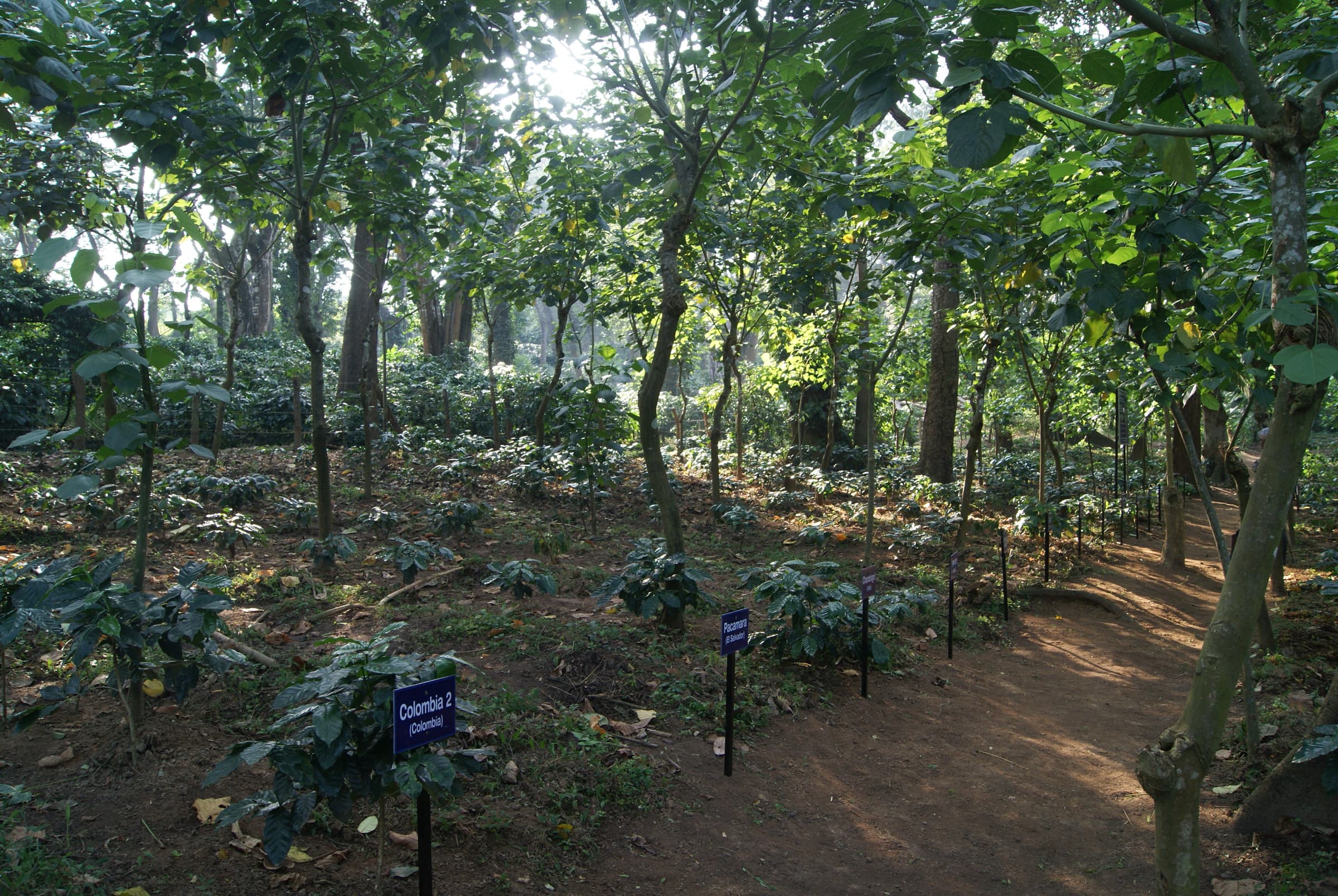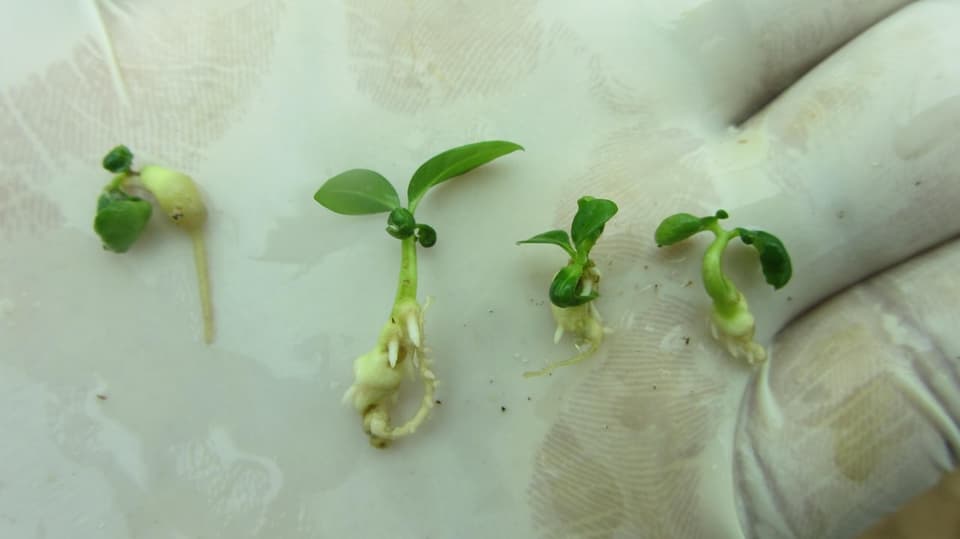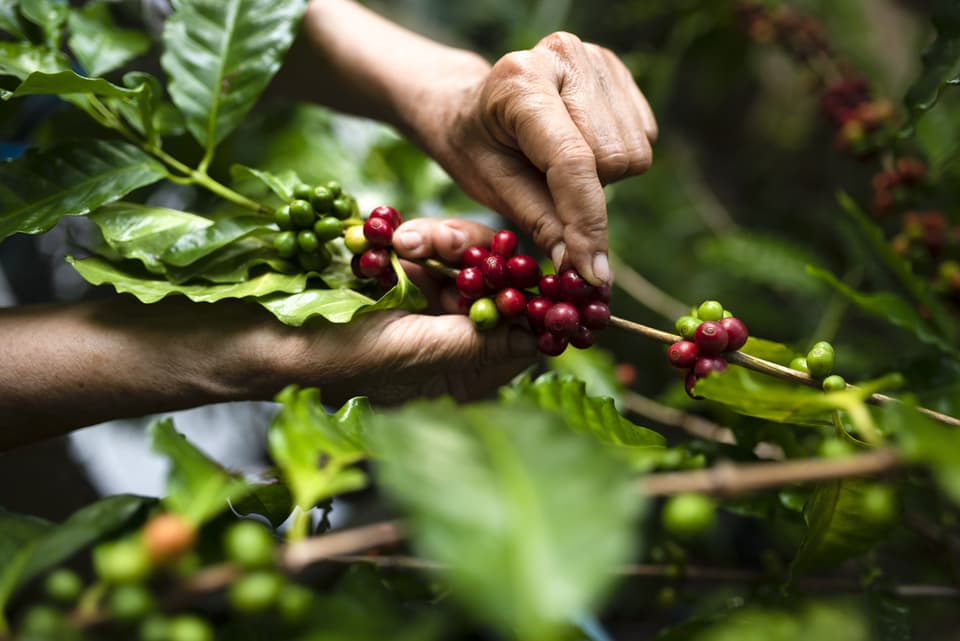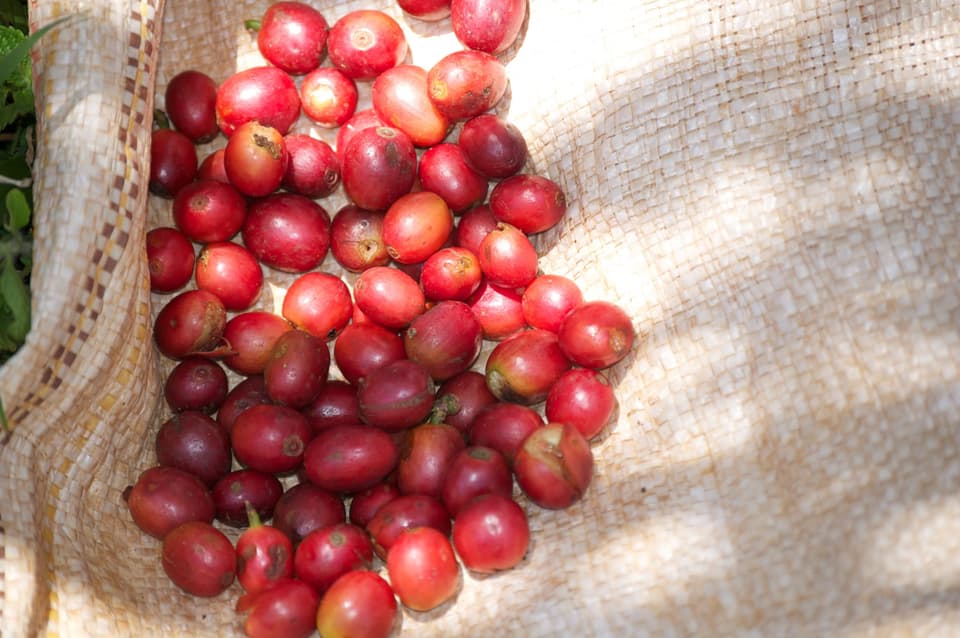Nearly all Indian coffee production occurs under shade, and coffee is often grown together with other high-value crops. As such, Indian coffee systems are models for the world as we look for solutions for the climate crisis and the economic sustainability of coffee. India also possesses more coffee genetic diversity than most countries, due to coffee’s early introduction from Yemen in the 17th century and proactive national investment in breeding. Over the last four decades, many of India’s 330,000 farmers have gradually shifted production from arabica to robusta in response to the white stem borer and economic pressure, and India has created a niche as the world’s highest-quality producer of robusta. The export value of coffee in India is $1.25 billion. Coffee has grown in India since the 1600s, contributing to a robusta culture of domestic consumption. India also has a long tradition of coffee agricultural research, in part because the country faces some of the highest disease pressure of any coffee origin in the world. The Central Coffee Research Institute, founded in 1925, is among the oldest continually operating coffee research institutions in the world.

India
India has quietly been near the forefront of coffee research for years, with a decades-long tradition of breeding and supporting farmers to fight diseases and pests. Indian coffee farmers face more disease pressure than farmers anywhere else in the world, and national priorities are focused around creating resistant and climate resilient varieties, along with extension to farmers in support of both goals. Since 2017, WCR has partnered with the Central Coffee Research Institute (CCRI) of the Coffee Board of India to test international varieties as part of the International Multilocation Variety Trial. India has also collaborated in the development of a low-cost arabica and robusta genotyping tool to support modern breeding approaches. India’s national coffee breeding program, run by CCRI, is an active partner in WCR’s global arabica and robusta breeding networks. CCRI has also undergone rigorous assessment using the Coffee Breeding Program Assessment Tool.
Programs in India
Our Partners

Central Coffee Research Institute (CCRI)
CCRI, established in 1925, is the research and extension arm of the Coffee Board of India. CCRI is located in the heart of Karnataka, India’s most important coffee region. For nearly 100 years, the institute has conducted research on plant breeding, agronomy, agricultural chemistry and soil science, plant physiology, pathology, entomology and post-harvest technology. CCRI has developed numerous improved varieties with tolerance to major pests and diseases.







